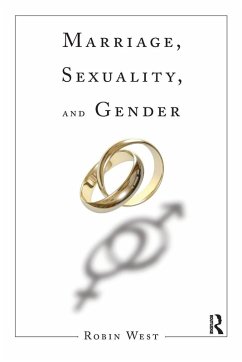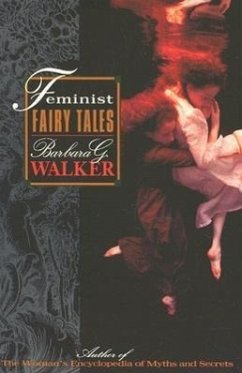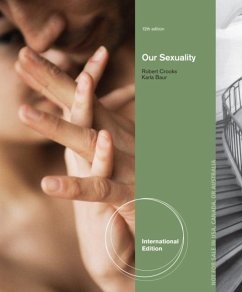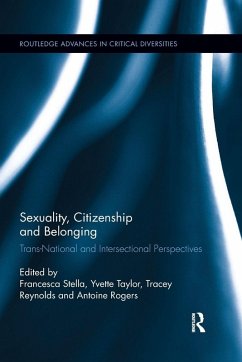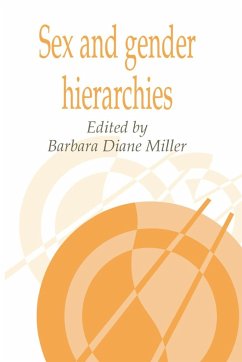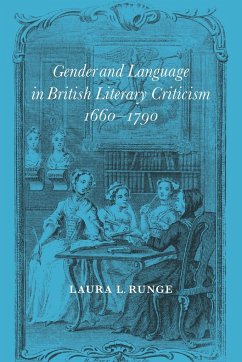
Fairy Tales, Sexuality, and Gender in France, 1690 1715
Nostalgic Utopias
Herausgeber: Sheringham, Michael
Versandkostenfrei!
Versandfertig in 1-2 Wochen
50,99 €
inkl. MwSt.

PAYBACK Punkte
25 °P sammeln!
A study of the genre of the literary fairy tale in late seventeenth-century France.Between 1690 and 1715, well over one hundred literary fairy tales appeared in France, two-thirds of them written by women. This book explores why fashionable adults were attracted to this new literary genre and, integrating socio-historical, structuralist, and post-structuralist approaches, considers how it became a medium for reconceiving literary and historical discourses of sexuality and gender. The first part of the book considers how the marvellous is used to legitimize the genre, to exemplify theories of '...
A study of the genre of the literary fairy tale in late seventeenth-century France.
Between 1690 and 1715, well over one hundred literary fairy tales appeared in France, two-thirds of them written by women. This book explores why fashionable adults were attracted to this new literary genre and, integrating socio-historical, structuralist, and post-structuralist approaches, considers how it became a medium for reconceiving literary and historical discourses of sexuality and gender. The first part of the book considers how the marvellous is used to legitimize the genre, to exemplify theories of 'modern' culture, and to reaffirm women's potential as writers. The second part examines how specific groups of tales both reiterate and unsettle late seventeenth-century discourses of love, masculinity and femininity through conventions such as the romantic quest, the marriage closure, chivalric heroes and good and evil fairies.
Review quote:
"This is in many ways an outstanding scholarly achievement."
Marvels Tales: Journal of Fairy-Tale Studies, Vol. 11,Nos. 1-2
"This impressive study provides great insight into not only the Marvellous and the conte de f#233;es, but also issues of sexuality and gender under the ancien r#233;gime and at times of cultural transition and unease in general. It is a compelling tale, well told."
Mererid Puw Davies, Eighteenth Century Fiction
"Seifert provides us with a solid and learned study of French fairy tale in its beginnings. He has much to tell us, and he shows us that we have much to learn."
Modern Philology
Table of contents:
Acknowledgments; Introduction; Part I. Marvelous Storytelling: 1. Marvelous realities: toward an understanding of the merveilleux; 2. Reading (and) the ironies of the marvelous; 3. The marvelous in context: the place of the contes de fées in late seventeenth-century France; Part II. Marvelous Desires: 4. Quests for love: visions of sexuality; 5. (De)mystifications of masculinity: fictios of transcendence; 6. Imagining femininity: binarity and beyond; Afterword; Notes, Selected bibliography; Index.
Between 1690 and 1715, well over one hundred literary fairy tales appeared in France, two-thirds of them written by women. This book explores why fashionable adults were attracted to this new literary genre and, integrating socio-historical, structuralist, and post-structuralist approaches, considers how it became a medium for reconceiving literary and historical discourses of sexuality and gender. The first part of the book considers how the marvellous is used to legitimize the genre, to exemplify theories of 'modern' culture, and to reaffirm women's potential as writers. The second part examines how specific groups of tales both reiterate and unsettle late seventeenth-century discourses of love, masculinity and femininity through conventions such as the romantic quest, the marriage closure, chivalric heroes and good and evil fairies.
Review quote:
"This is in many ways an outstanding scholarly achievement."
Marvels Tales: Journal of Fairy-Tale Studies, Vol. 11,Nos. 1-2
"This impressive study provides great insight into not only the Marvellous and the conte de f#233;es, but also issues of sexuality and gender under the ancien r#233;gime and at times of cultural transition and unease in general. It is a compelling tale, well told."
Mererid Puw Davies, Eighteenth Century Fiction
"Seifert provides us with a solid and learned study of French fairy tale in its beginnings. He has much to tell us, and he shows us that we have much to learn."
Modern Philology
Table of contents:
Acknowledgments; Introduction; Part I. Marvelous Storytelling: 1. Marvelous realities: toward an understanding of the merveilleux; 2. Reading (and) the ironies of the marvelous; 3. The marvelous in context: the place of the contes de fées in late seventeenth-century France; Part II. Marvelous Desires: 4. Quests for love: visions of sexuality; 5. (De)mystifications of masculinity: fictios of transcendence; 6. Imagining femininity: binarity and beyond; Afterword; Notes, Selected bibliography; Index.





